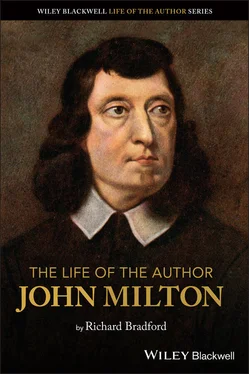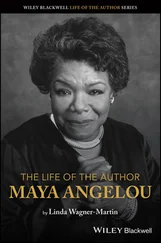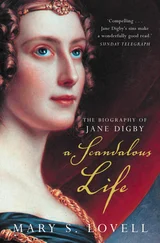1 ...6 7 8 10 11 12 ...16 It is evident from Milton’s early poetry that he was as confident and skilled in his use of figurative devices as any of his contemporaries, but it is equally clear that, unlike most of the Metaphysicals, he used language, poetic language, as a means of logically addressing the uncertainties of life, unlocking them; not as an experiment but as a harsh confrontation with the relation between language and knowledge.
Two other poems, written in 1631, during Milton’s final year at Cambridge, attest to his growing perception of poetry as a vehicle for both creative and intellectual endeavour. ‘L’Allegro’ and ‘Il Penseroso’ are poetic versions of the academic debating exercise where one person displays his skill as a rhetorician by arguing the relative values of two opposing, sometimes antithetical, ideas or propositions. Milton was required to do this as part of his Master’s degree and the two poems are based upon his engagement with the question of ‘Whether Day or Night is More Excellent’. The principal criterion for success in this academic exercise involved the extent to which equanimity and balance could be achieved between the opposing perspectives, and Milton’s poetic celebration of the various joys, benefits and opportunities of daytime and night-time experience attempts a similar exercise in symmetry. There is, however, a slight but detectable sense of empathy and commitment in ‘Il Penseroso’ (the night poem), while ‘L’Allegro’ (the day poem) involves more of an exercise in allegiance. In short, Milton discloses himself to be more innately predisposed to a state of mind which is removed from the distractions of unreflecting pleasure – he prefers night to day.
For example, two lines in ‘L’Allegro’ have exercised the attentions of numerous commentators:
Then to come in spite of sorrowAnd at my window bid good morrow
(46–7)
No-one was able to demonstrate precisely who or what comes to the window. It might be the mountain nymph (referred to in line 36), the singing lark (line 41) or Milton himself. The most likely explanation for this case of loose ambiguous syntax – very uncommon in a young man so alert to the discipline of composition – was that Milton in this poem was performing a duty, listing the pleasures of the day in the manner of a filing clerk, without any real enthusiasm or private enjoyment. As a consequence his attention lapses and he offers up a lazily constructed sentence.
Try as he might Milton cannot quite prevent elements of his temperamental disposition from disrupting the exercise in balance supposedly enacted in the two poems. At the conclusion of ‘Il Penseroso’ he asks night-time to
Dissolve me into ecstasiesAnd bring all heaven before mine eyes
(165–6)
implying that only the inner eye, the contemplative state, can enable human beings to properly understand what lies beyond the given world. In ‘L’Allegro’ he celebrates the pleasure of daytime as
Such sights as youthful poet’s dreamOn summer eves by haunted stream
(129–30)
and one should note that these sights inspire ‘youthful’ poets, implying that their more mature counterparts have moved beyond such distractions to thought.
The closing couplets of both poems are intriguing. The one from ‘L’Allegro’ is conditional:
These delights, if those can’st give,Mirth with thee, I mean to live
(151–2)
This suggests, subtly, that he could live with Mirth, if only … Compare this with the certainty of ‘Il Penseroso’:
These pleasures Melancholy give,And I with thee will choose to live .
(175–6)
These poems are important because they cause us to look beyond them to more emphatic disclosures of Milton’s state of mind in later work. They re-address a theme raised in the ‘Nativity Ode’, where the diversions and attractions of the known world are temporarily suspended for the birth of Christ. Milton would eventually go blind and his sonnet on this condition recaptures the mood of ‘Il Penseroso’; the contemplative, unseeing state is now an obligation, not a choice, and it seems to suit his temperament. More significantly, in the so-called ‘Address to Light’ at the beginning of Book II of Paradise Lost , Milton revisits ‘Il Penseroso’. He is about to bring God into the poem and the lines on how darkness might ‘bring all heaven before mine eyes’ written thirty years before must surely have registered for the now blind poet.
Shortly before Milton’s departure from Cambridge his father was responsible for our first record of his adult appearance and demeanour. John senior, prompted perhaps by his son’s growing reputation as a poet, commissioned a portrait of him which he sat for during the weeks after his twenty-first birthday. The Puritan fashion for short pudding-bowl haircuts was not in 1630 quite as widespread as it would be during the Civil War but it was already worn by many as a sign of allegiance. Milton’s wavy brown hair falls to his collar. His black doublet and white falling ruff is the unashamed costume of a gentleman. Toland, who based his biography on accounts from Milton’s friends and family, describes him in a manner that complements the portrait well: ‘he made a considerable figure … He was middlesiz’d and well proportion’d, his Deportment erect and manly, his Hair of a light brown, his Features exactly regular, his Complexion wonderfully fair as a Youth, and ruddy to the last.’ (Darbishire, 1932, pp. 193–4) This description of the young man as almost feminine in appearance should not mislead us into assuming that Milton used Cambridge to protect himself from the harshness of the real world. He had during his undergraduate years been involved in the ritual known as ‘salting’ where new students would be subjected to a vile form of initiation. Each was asked to give a speech on a topic chosen by their seniors and judged by the latter on their performance. The best were rewarded with wine and beer and the worst be obliged to drink ale to which a barely endurable amount of salt had been added. Particularly bad speakers would have their cheeks scratched with iron nails. On several occasions Milton was appointed ‘Father’ of this activity, the man who ensured that rewards and punishments were fairly distributed. If this calls to mind a seventeenth-century version of more recent and very nasty public schools then the parallels deserve further scrutiny. Public school cruelty and bullying reflect the culture of governance and privilege fed by these institutions. Similarly, the horrible nature of ‘salting’ served undergraduates – essentially the gentry – as an introduction to the society that was equally remorselessly brutal and which they would dominate after Cambridge. Milton had remained in contact with his St Paul’s tutor Gill and in 1628 heard of the horrible punishments visited on him. Between 1627 and 1628 the Duke of Buckingham, on the instructions of Charles I, led 7,000 men in support of the Huguenot Protestants who were defending the west coast French city of La Rochelle against the Royalist/Catholic army of Cardinal Richelieu. On the face of things Buckingham should have been treated as a defender of the Protestant cause but his manifest incompetence as a military commander and his shift of allegiance during the campaign from the Huguenots to Richelieu caused many in England to suspect that he was corrupt, secretly allied to Catholic powers, and that the English king was similarly disposed. Gill’s letters to Milton ceased before the former was arrested but Milton would have learned of what had occurred. In August 1628 Buckingham was assassinated, stabbed to death, in London by one John Felton who openly confessed to the killing of, in his opinion, a traitor who sympathised with the Catholic states of mainland Europe. Felton was executed and soon afterwards Gill voiced his opinions on the affair while drinking with friends in the cellar of Trinity College, Oxford. Gill stated that Charles I was ‘fitter to stand in a Cheapside shop’ then govern ‘this kingdom’, that Buckingham had ‘gone down to hell to meet King James there’ and that he was sorry that Felton had deprived him of doing the ‘brave act’ of killing Buckingham himself. A pro-Carolingian overheard and informed on him; he was removed from his religious ministries, his university degrees were revoked, he was fined £2,000 (a gigantic amount which left him bankrupt) and sentenced to have both of his ears cut off. Eventually this last penalty was revoked but nonetheless Gill’s life was ruined; he spent more than two years in jail.
Читать дальше












